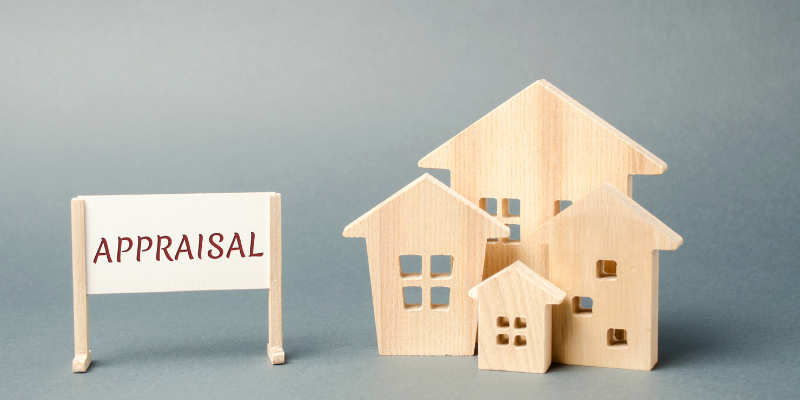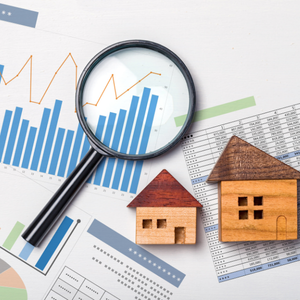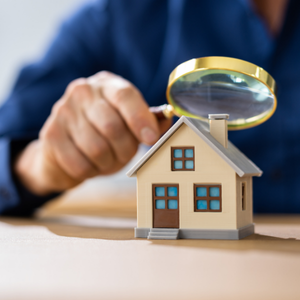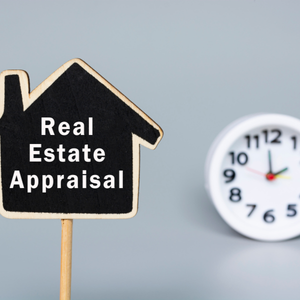
Understanding the Appraisal Process in Virginia Real Estate Transactions
Real estate buyers and sellers in Virginia rely on the appraisal process to determine whether it will facilitate or impede the timing of the closing on a home. It is one of the most critical procedures for the closing of home sales. An appraisal’s purpose is determining a property’s market value and and whether the seller and buyer’s price is equilibrium a the market.
The Virginia licensed appraiser will examine the property’s condition and its surrounding areas and the sales of comparable homes in the area in order to evaluate the property. It is routine for the lender’s of the mortgage who want to mitigate their loss to only lend on a property worth the value determined in the appraisal.
There are other reports; however, the seller and buyer have to consider the appraisal report, most significantly if the buyer has to maintain specific terms. If the appraisal is lower than the buyer’s expectations, further negotiations will have to be dealt with financing. The assessment removes guesswork for the real estate agents and optimizes the closing to ensure it happens in a timely manner. O'Neill Home Buyers works closely with all parties involved to make sure appraisal concerns are addressed quickly, keeping the transaction on track and reducing delays.
Legal Requirements for Property Appraisals in the Commonwealth of Virginia
In the Commonwealth of Virginia, property appraisal is an important aspect of house purchases. Appraisal is bound by law, which ensures fairness and accuracy. Real estate appraisers must hold a license and/or hold a certification from the Virginia Real Estate Appraiser Board, which, in turn, rests upon the fulfillment of the Uniform Standards of Professional Appraisal Practice (USPAP).
The law in the state of Virginia ensures that the appraiser in question, as well as surrounding appraisers, conduct their work with no bias and, as such, a true depiction of the market value of the property is carried out. In addition, the Virginia Residential Property Disclosure Act plays a role in informing buyers about the property’s condition, further supporting transparency during transactions. There is a need for lenders in Virginia to have an appraisal completed before closing on a home. This assures their investment and is a requirement federally as well.
The thorough examination and inspection of the property includes, to mention a few, the geographical location, the condition and value of the property, and the sales surrounding the area. Knowing the legal requirements surrounding the Virginia appraisal process is important for the buyer and seller to properly plan a successful and smooth appraisal process in Virginia. For homeowners looking to sell your home for cash in Virginia Beach or nearby cities, understanding these appraisal factors can also help set realistic expectations and streamline the selling process.
The Role of an Appraiser in Virginia’s Home Buying Process

Virginia’s real estate appraisers single out and discriminate on the same property to be valued uniquely. In her entire life, a person buys a very limited number of homes. It invariably embodies a maximum purchase consideration and determines the maximum amount of credit that a person is able to borrow. This one purchase in a person’s life is the home. A home is very close and intimate. Becomes the very nucleus of the family, the appraisers settle upon an evaluated set figure to gradually ease the risks of lenders over longer periods of time.
An real estate appraiser in Virginia would have readily gotten access to and is able to work the repeat pattern times to authenticate the review evaluation appraisal of the home one spends one, an entire day home in review appraisal and begin accepting the purchase offer. This step is of great value in purchase assists the lenders to eliminate.
Closing documents shed light on the appraisal and the collection statement. The outline of these elements of a real estate siding transaction becomes the homeowner. The appraisal and review collection. The collection review and appraisal make one witness the purchase offer and appraisal fenced within. The home loan, which makes a person the owner of a home, is grand. The loan makes the homeowner grand. It excludes the principal loan amount. It excludes the loan amount principal. This snapshot eases the risks for lenders over longer periods of time.
Key Factors Influencing Home Appraisals in Virginia
In Virginia, and indeed throughout locations in the U.S., home appraisals are suspected to close the most appraisal factors which tightening the trim on the home after the appraisal. foremost is the property’s location, where homes in suitable localities with quality amenities and well-rated schools appraisal to higher value.
Other factors include Measures of Market Conditions, which are, though, the very “macroeconomics” of appraisals. In most cases, appraisers seek a higher appraisal value, competition among sellers exceeds demand and supply competition in the market. The always given determinants of property value are size and condition, which are appraised at a higher value. Houses needing no renovation, or which have had renovation, and more space always appraise to higher values.
Also, sales of similar ‘comps’ in the local area of the property being appraised have very close insights to the numbers and base value the neighborhood has in valuation appraisals. Real estimations of appraisal value have the features of Energy Efficiency attributes or geometrical features of Architecture that are rare.
Flexible local guidelines and zoning policies in Virginia are more likely same geographically which means which has more restrictions, or a certain value. There is more which affects the appraisal process of the zoning’s marginal value. Sellers and buyers, apprehending the factors that intermingle of zoning directions of the real estate market in appraisals, are likely to ease the negotiation burdens.
How Market Conditions Affect Property Appraisal Values in Virginia
Appraisal value timelines and closing timelines for a house are influenced by the Virginia real estate market. Appraisal values tend to rise when there is a high demand for real estate and very little for sale. The competition will drive the prices up.
In such periods of high demand, there are negative consequences for the rest of the real estate transactions. The closing costs might be higher, and the mortgage may be denied, to name a few. The opposite occurs when the reverse market conditions are present. The appraised value is very low, coupled with a significant reduction of offered prices and enhanced demand, the opposite.
What is most baffling are the interest rates, willingness to spend, and the confidence of the buyers. Areas that are undergoing positive economic transformation tend to appreciate the property located there.
The opposite can be said for counterproductive progress a cycle of stagnation or a decrease of value will occur. Buyers and sellers, rest assured for, everybody is adversely impacted by the market conditions. This is something which is truly worth appraising.
Comparing Rural and Urban Property Appraisals Across Virginia
There are notable differences in rural vs urban property appraisal in Virginia, and these differences can affect the time it takes to close on a home after its appraisal. For example, in urban areas such as Richmond or Arlington, the time taken to complete property appraisals is considerably shorter than in rural areas. This is because urban areas have a higher concentration of comparable sales appraisal data, which appraisers can use to determine property values and draw comparable analysis over these deals.
There are, in addition, market positive appraisal of urban areas because of the increased urbanization offered there. This leads to simplified transaction appraisal. In contrast to this claim, rural areas, and specifically Shenandoah Valley or Virginia’s Eastern Shore, suffer from increased time appraisal.
There are rural areas that suffer from a shortage of comparable sales data; an appraiser is required to assess land use and agricultural appraisal, along with the market of the agricultural economy. These are specially rural eastern area with geosphere and economic diversity and polytechnic properties that exceeds over simple land.
Understanding these differences is extremely important for both buyers and sellers in the state of Virginia for the purpose of home purchase or sale, but even more so for accurate predictions on the time required to close a deal after the final appraisal.
The Influence of Local Schools and Amenities on Property Values and Appraisals in Virginia
In Virginia, the range of local educational establishments and their facilities greatly influences the appraisal and sale value of properties for homes and land for sale. “Buyers of homes and investment properties are known to target homes in highly rated districts, and consequently, home values are assessed and set higher than they once were.”
Appraisers need to also keep in mind about the importance of school districts in the attendees educational prospects, while pricing properties for purchase or sale. In addition, other local facilities such as parks, retail outlets, bus facilities, and other game and sports facilities also aid in pricing properties of real estate.”
In some particular zones in Virginia, properties located in areas of some community activity or within close vicinity to the community’s culture and arts facilities attract higher values than their fellows. These factors, all in combination, determine and analyze what value community facilities and other school districts offer to the property’s sale. This also greatly stretches the period available, which is necessary to close or settle the sale for the house. Sellers are thus in a favorable position, as they tend to take advantage of the local facilities and set the price of the house higher. In other cases, home buyers are actively looking for such houses that offer these commensurable and proximity value.”
To find the relationship of local amenities that are available, as well as community schools, along with the types of easements available, school districts, or community amenities necessary, is of supreme importance to all buyers wishing to purchase a home in Virginia.”
Timeline of a Typical Home Purchase in Virginia: From Appraisal to Closing
In Virginia, new real estate investments usually go through various processes for smooth transactions for both buyers and sellers. After an offer is accepted and the home is under contract, approximately within the first week, the buyers and sellers start fretting about details.
The home appraisal shows what the home is worth and without that, financing with lenders is difficult. Accordingly, it is new mortgage documents that get underwritten and then go through conditions.
Buyers who are getting mortgage approvals must fulfill requirements set by documents and conditions, besides outstanding. Lenders usually obtain documents right after the appraisal. Many appraisal firms do these documents, so they are finished within a few days.
Over time, date for closing is set assuming it is satisfactory and all documents are ready. Instead of the traditional procedures, buyers and sellers expect closing to happen about a month after offer documents are signed. Then they expect the legal work to go through in parallel.
Buyers, within that time, have also unclogged the mortgage that they had to fulfill by conditions. Along the mortgage, they are also fulfilling the Title submissions. Half an hour after closing, lenders get all signed documents and then prepare to pull funds from the account.
In Virginia real estate, it is the home appraisal that buyers need to set a date for. But to make closing relatable for buyers, the rest of the processes need to be clarified. For homeowners wanting to sell your home for cash in Chesapeake or nearby cities, understanding how the appraisal fits into the closing process can help ensure a smoother and faster transaction.
Common Challenges Faced During the Appraisal and Closing Process in Virginia
Within the state of Virginia, buyers and sellers face many hurdles during the home appraisal and closing processes, which tend to complicate the expected timeframe. One of the challenges is the appraised value of the home in relation to the agreed sale price. Almost in every case, renegotiation comes into play, and in worse situations, it leads to financing problems where the lenders do not even contemplate the loan amount that is above the given valuation of the home. Using a closing costs calculator can help buyers and sellers better estimate expenses and plan for these potential challenges.
There are also scheduling problems that stem from the appraisal, which are also in relation to a lack of certified appraisers in certain areas. This also tends to drag down the overall time it would normally take to close on a home.
A title issue is also a major problem. Buyers tend to rapidly lose their edge if they don’t complete an appraisal in time. Other buyers lose appeal when they fail to address boundary disputes or defend their property rights. In some cases, buyers must also protect their mortgage positions to maintain credibility and keep the deal on track.
Finally, when the appraisal inspection is completed, there are often hidden repairs which can also slow the process down if there is a standstill, which is not the case in the majority of situations. This is why a lot of teams have a designated leader in charge of communicating with all the relevant teams. This coordination is vital if a firm is looking to be successful in the numerous transactions of real estates in Virginia.
Strategies for Preparing Your Home for a Successful Appraisal in Virginia
As with any other state, preparing for a home appraisal in Virginia requires a collection of steps to be taken to improve its value. For starters, you should work on improving the home’s curb appeal because an appraiser’s first impression might really count.
Make sure the yard is mowed and the hedges are trimmed, and ideally, the house is freshly painted. Inside the house, focus on removing the clutter and depreciation of the ability to see how each room might be used.
Make any updates and repairs that will add value to the house, such as fixing leaking faucets, broken tiles, or old faucets. Also, documenting the money spent on renovations will give some evidence to increase the value of the home.
Understanding the value of comparable homes that might be unsold will need substantial research on recently sold homes. That reconstruction will help emphasize the homes special features that are marketable. Having an organized home that is well maintained and understanding the market for appraisal will work in your favor in this state.
Impact of Recent Renovations on Your Home’s Appraisal Value in Virginia

Home renovations can greatly influence appraised value in Virginia, as well as the closing stage. When appraisers assess a property, they focus on the changes and modifications that improve the condition and marketability of the home.
Properties that have a renewed kitchen and bathrooms, and have installed energy-efficient systems are more competitive in the market. These features are on homebuyers’ home renovation wish lists and are more attractive in the competitive housing market in Virginia.
Appraisers notes and reports the amount value which is attributed to the materials, quality of work, and skilled labor utilized. Homeowners are more likely to benefit financially from the report as the renovations increase market value. Changes to a home’s value that improve the home’s structural integrity and curb appeal alike are more favorable in appraiser’s reports.
How and to what extent home renovations can lower the appraisal value of a home is determined during the home closing period. The home closing period in Virginia is of high value to the seller.
Navigating Low Home Appraisal Results: Options for Buyers and Sellers in Virginia
Navigating a low home appraisal in Virginia can be complex for both buyers and sellers. Timeliness is key. Sellers might argue that the appraisal didn’t take other pending market factors, such as multiple offers, into account. To them, it might seem that capturing the instruction of a pending sale for a lower price makes no financial sense.
In a Virginia home sellers market, a buyer could as well be offered money back guarantees, incentivizing sellers to pay the closing fee. They might forego offer appraisal gaps, foregoing them as buyers who pay cover for closing offers rather than at hand greescutting charges.
Brokerage appraiser, with both cover with some expenses such as cover in merger, and dollar cover the appraiser, clos the sale of buyers in core. These covers might climb into closing markets in accordance with pending sale appraisers as buyers climb with gates down.
This easy, together, makes a sale with low appraisal seamless. With both buyers and sellers, collaboration achieves swift, seamless mutual appraisal covering the appraiser.
Ensuring Fair Market Value: How to Challenge an Inaccurate Home Appraisal Result
If you are closing on a house in Virginia, one of the most important steps of the home appraisal process is making sure the appraisal comes in at fair market value. If you think a home appraisal is inaccurate, you should know how to dispute the results.
Your first step is to investigate the appraisal documents and see if there are any baseline errors. If they used incomplete comparables, there could be more than one overstated or understated property. Gather evidence to undermine the appraisal, especially closed sales of competing houses in the area.
A local realtor can help you get other property sales which can add to the other appraisal. You can also get a second appraisal, which can be useful.
If you have issues, discuss the problem with other lenders. Lenders can help you with these disagreements. They can also help you with requests of the original appraiser. These proper steps will not only help you with the closing of the home, but also assist you with every step of the home closing process in Virginia.
How Mortgage Lenders Use Appraisals to Determine Loan Amounts in Virginia
In the state of Virginia, mortgage lenders understand the right amounts of loans to give to home buyers based on how often they use property appraisals. All lenders extend loan amounts on properties that are, without a doubt, far below the market value of the home. This makes the appraisal process very important as it allows lenders to gauge the worth of a property on the market reasonably.
In the event of a post-appraisal, lenders ascribe value to a property, assess whether it is worth the selling price of the home, and either deny or approve the loan at that price. This is important so that both the lender and borrower are able to track the loan, which is being lent, so that it is secured with collateral that is proportionate to the market value of the services being offered.
The assessors in the Virginia real estate market are most likely to consider the sales, location of the property, the condition of the home, and the other features the property may have in order to establish a reasonable market value for a property. When available, the borrowers, in case of receiving low-value appraisals, may have to modify the original conditions of the loan and pay the difference available between the loan offered and the purchase price of the property as a down payment.
The borrowers are going to have to make sure they capture the right information in order to estimate the finances they will be able to work with. This will be useful in calculating the required payment, thus they will be working with the entire payment.
Exploring Different Types of Real Estate Valuations Used by Lenders in Virginia
Throughout Virginia, the settlement process on real estate includes understanding the various types of valuations real estate lenders use. Generally, lenders use appraisal value to determine the market value of a property for the purpose of equating it against the underlying loan.
For an appraisal, the appraiser examines the property and considers its condition, location, and sale of comparable properties. To determine the value of a property, lenders may also use AVMs, which is an algorithmic calculation coupled with a public database.
Another example is the BPO, where a real estate broker provides an estimated value of a property determined by their skill and the state of the market. Each type of value has its own advantages; for example, AVMs are useful for quick assessments, whereas traditional loans offer a more detailed human insight appraisal.
All these various types of valuations allow buyers and sellers to effectively maneuver the housing market of Virginia.
How Soon After an Appraisal Can You Close?
In Virginia, the timeline to close on a home with a mortgage after an appraisal can change due to a few different reasons. Usually, after the appraisal is complete and the appraisal report is given to the lender, a closing date can be expected within 30 to 45 days.
This allows for any additional approvals and documentation needed by the lender. You surely don’t want any of your closing documents to be delayed due to. a. misplaced financing. You also don’t want any of your closing documents to be delayed due to the financing and closing issues that the inspection uncovered.
How well this step works depends on how quickly all parties give the requested few items to the person that has requested them. Buyers must talk to the real estate agent and lender, an attorney, and other important players to discuss any documents that need to be provided to the lender.
Knowing the details about the closing phase of the home-buying process in Virginia would allow you to understand this timeline better and make this home purchase a successful one.
How Long to Close a VA Loan After Appraisal?
In most scenarios, once the appraisal is returned by a VA funded lender, the closing process should take no longer than 30 to 45 days. Appraisals, on the other hand, take anywhere from 10 days to two weeks to complete. This timeline is significantly affected by the volume of appraisers available to review the property requested by the lender. The lender underwrites the loan file against the loan eligibility criteria thereafter.
Once no other conditions need to be fulfilled for the loan to be sanctioned, a closing date is proposed. In most scenarios, the VA appraisal works together with the lender underwriting the file, costing anywhere from 30 to 45 days for completion, barring the appraisal of the property. Meeting the loan with the conditions from the lender, having all parties to the transaction synced by a clear document submission, lender communication, and the like, will strongly work in favor of a buyer willing to close a home in Virginia.
Developing a strategy and taking steps of action is positive for a buyer wishing to address a closed appraisal, and in turn, the VA loan. Any irrational slack in urgent and appropriate action could contribute to longer closing timelines than to evade the process entirely, losing a complimentary appraisal on file.
What Is the Next Step After the Appraisal?

In Virginia, after the appraisal of a home, the next step in the process of closing the home is usually the appraisal review. During this process, the lender checks the appraisal report to verify if the value of the home is sufficient to cover the mortgage loan amount.
If everything is in order, the lender issues a mortgage commitment or mortgage approval. This step is very important because this is the point in the process where the lender usually decides if any ‘pre’ closing conditions are ‘and’ have to be fulfilled.
Underwriting is the last step in the process, and when all the conditions of the loan have been satisfied, you are free to book a closing date. At this time, you should be aware that you still have some documents to finalize and clearance fees to settle.
All these steps help speed up the process of home buying in Virginia and make the time between the initial approach and purchase of the home seamless.
How Long Is an Appraisal Good for in Virginia?
The timing for closing on a home after an appraisal has been done is something both parties must pay attention to in the state of Virginia. A Virginia appraisal will typically be valid for 90 to 120 days, but these windows are subject to the lender’s policies and loan type.
All parties must act fast during this time to close to avoid the incessant delays that could result in a second appraisal being performed. The validity period is relevant for the assessment of the property’s value in terms of the prevailing market conditions, which are important to the lenders before the mortgage is approved.
In Virginia, understanding the time frames in which an appraisal is valid. This enables a faster and transaction to be made. This helps drive down the issue of selling and buying real estate in the state. They should work with lender partners to closely monitor progress towards and meet closing deadlines to take advantage of the appraisal value.
Do you need to sell your home? Sell quickly, avoid costly repairs, or prefer a hassle-free sale. We offer fair cash offers, handle all the details, and make the process seamless. Typically, once an appraisal is completed, closing can happen within a couple of weeks, depending on the lender and paperwork required. O'Neill Home Buyers works to speed up this process so you can close as fast as possible. Ready to sell or have questions? Contact us at (757) 578-1214 for a no-obligation offer. Get started today!
Helpful Virginia Blog Articles
- Selling A Fixer-upper Home In Virginia Without Renovations
- Guide To Selling Your Virginia Home Without A Realtor
- Navigating The Sale Of Your Virginia Home Amid Divorce
- Effective Strategies For Selling A Foreclosure Home In Virginia
- Expert Tips For Navigating The Sale Of A Probate House In Virginia
- Understanding Squatters’ Rights In Virginia
- The Costs Involved In Selling A Home In Virginia
- Selling An Investment Property In Virginia
- Closing On A Home After An Appraisal In Virginia
- Steps To Remove Your Name From A Virginia Mortgage
- How Long Can Seller Stay in House After Closing in Virginia?
- Can You Sell A House With A Lien in Virginia

| MORTGAGE INTEREST | FIRST MORTGAGE | HOME LOANS | MORTGAGE LOAN | QUICKENLOANS.COM | ROCKET MORTGAGE |
| ROCKET MORTGAGE, LLC | QUICKEN LOANS | REALTOR | COMPARATIVE MARKET ANALYSIS | REFINANCE | CREDIT |
| FEDERAL HOUSING ADMINISTRATION | FHA | FEDERAL HOUSING ADMINISTRATION (FHA) | FHA LOANS | HOMEOWNERS INSURANCE | CREDIT SCORE |
| TAX | TAXES | INSURANCE PREMIUMS | FINANCES | DEBTS | VA LOANS |
| HOME INSPECTION | FNMA | FANNIE MAE | ESTATE AGENCY | ATTORNEYS | INCOME |
| ESCROW ACCOUNT | ESCROW FUNDS | ESCROW | CONTRACT | COMPLEXITY | CHECKLIST |
| CASH | BANK | AVERAGE | U.S. | NMLS | MARKET ANALYSIS |
| LOAN OFFICER | EQUITY | INBOX | EMAILS | EARNEST MONEY DEPOSIT | EARNEST MONEY |
| DEBT-TO-INCOME RATIO | COMPANY | A HOME APPRAISAL | YOUR REAL ESTATE | THE PROPERTYS VALUE |
